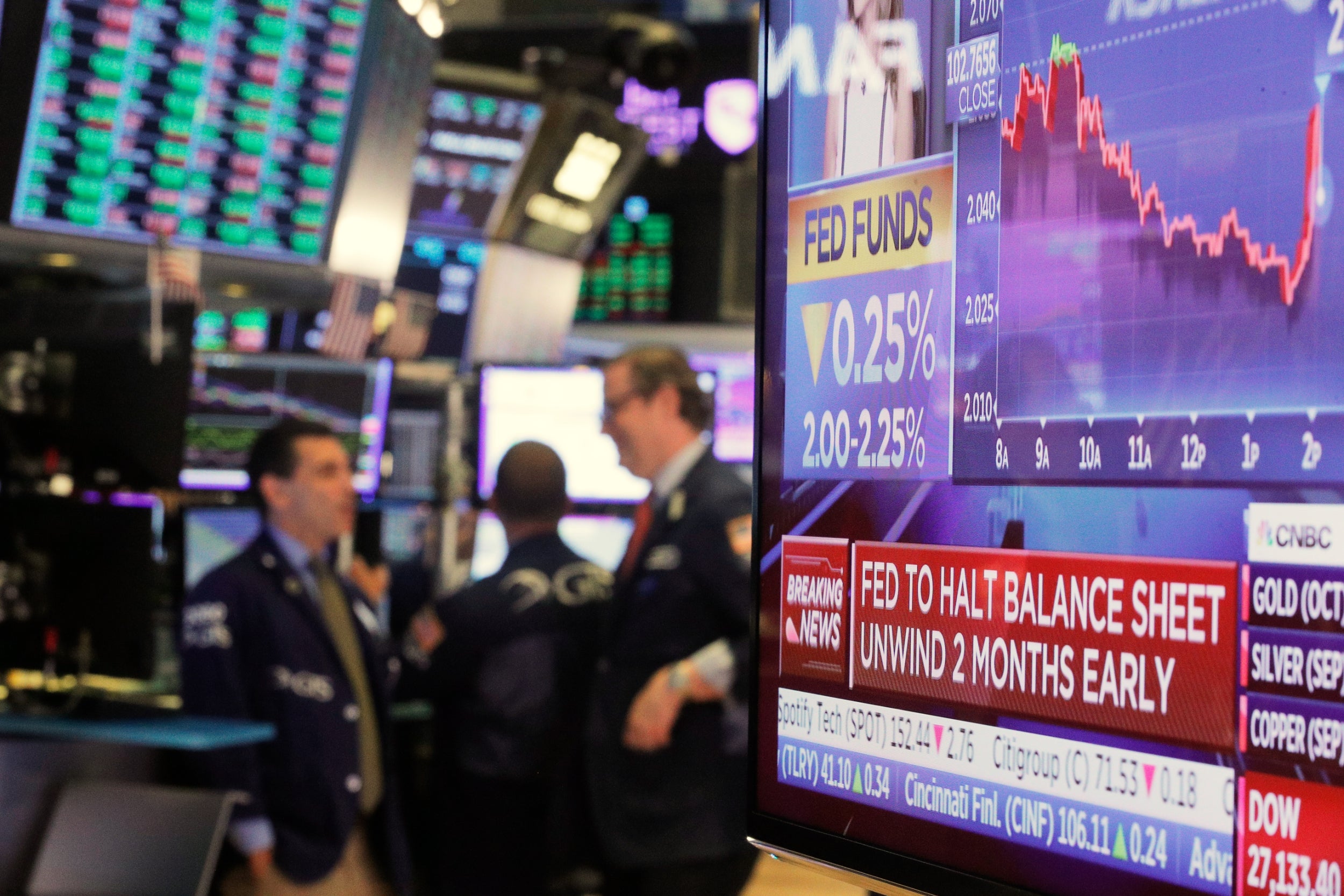US interest rates to stay on hold ‘for a time’ in election year
Minutes from meeting say risk of no-deal Brexit impacting growth has 'lessened'

Your support helps us to tell the story
From reproductive rights to climate change to Big Tech, The Independent is on the ground when the story is developing. Whether it's investigating the financials of Elon Musk's pro-Trump PAC or producing our latest documentary, 'The A Word', which shines a light on the American women fighting for reproductive rights, we know how important it is to parse out the facts from the messaging.
At such a critical moment in US history, we need reporters on the ground. Your donation allows us to keep sending journalists to speak to both sides of the story.
The Independent is trusted by Americans across the entire political spectrum. And unlike many other quality news outlets, we choose not to lock Americans out of our reporting and analysis with paywalls. We believe quality journalism should be available to everyone, paid for by those who can afford it.
Your support makes all the difference.Interest rates in the United States looks set to remain on hold through 2020, meaning that the central bank will keep out of the political crossfire during the upcoming presidential election, the US Federal Reserve indicated on Friday.
The minutes of last month’s meeting showed that the committee believed the current stance of monetary policy was likely to remain appropriate “for a time” as long as incoming information about the economy remained “broadly consistent” with the economic outlook.
The Federal Open Market Committee voted unanimously to keep its main interest rate unchanged at 1.5 per cent to 1.75 per cent at its meeting in December, following three successive cuts in borrowing costs.
The Fed also published the forecasts for interest rates by the committee members. Thirteen of 17 officials forecast rates remaining on hold in 2020, with the four pencilling in a quarter-point hike. A majority forecast at least one increase in 2021 and 2022 but none a rate cut in the next three years.
“A number of participants agreed that maintaining the current stance of monetary policy would give the Committee some time to assess the full effects on the economy of its policy decisions and communications over the course of this year along with other information bearing on the economic outlook,” according to the minutes released on Friday evening.
While many saw the risks to economic growth as still tilted “somewhat to the downside”, some risks were seen to have eased over recent months.
“In particular, there were some tentative signs that trade tensions with China were easing, and the probability of a no-deal Brexit was judged to have lessened further,” the minutes said. “In addition, there were indications that the prospects for global economic growth may be stabilising.”
While there were no arguments for a cut in rates, the minutes said that a few participants raised the concern that keeping interest rates low over a long period might encourage excessive risk-taking, which could exacerbate imbalances inthe financial sector.”
The Fed will not have a chance to assess the impact of the US drone strike that killed general, Qassem Suleimani, who ran Iran’s military operations in Iraq and Syria, until its next meeting at the end of this month. Oil prices rose almost 4 per cent and while the benchmark S&P500 stock index was down 1.1 per cent at one point on Friday before recovering.
The minutes were published a couple of hours after an index of the manufacturing sector showed that output contracted in December at its quickest pace for 10 years.
The Institute for Supply Management said its index dropped to 47.2 from 48.1 on a scale where 50.0 marks the line between expansion and contraction. “The further decline is a clear disappointment and seems to suggest that the US economy is teetering on the brink of recession,” said Michael Pearce, senior US economist at Capital Economics.
However, he said it was hard to put much store on the figures given they were a sharp contrast to Thursday’s purchasing managers’ index by IHS Markit that pointed to strong growth in the sector.
Join our commenting forum
Join thought-provoking conversations, follow other Independent readers and see their replies
Comments